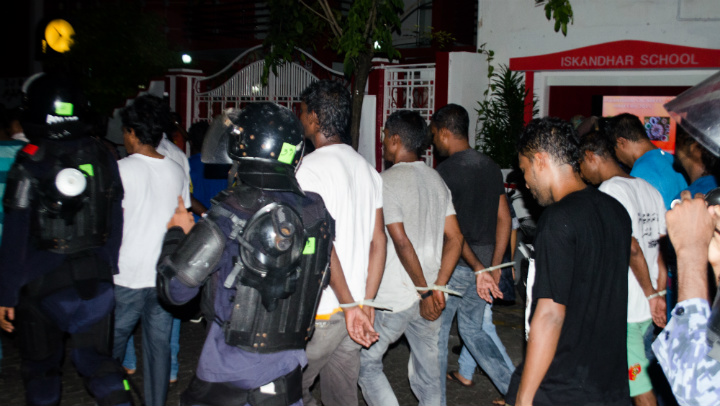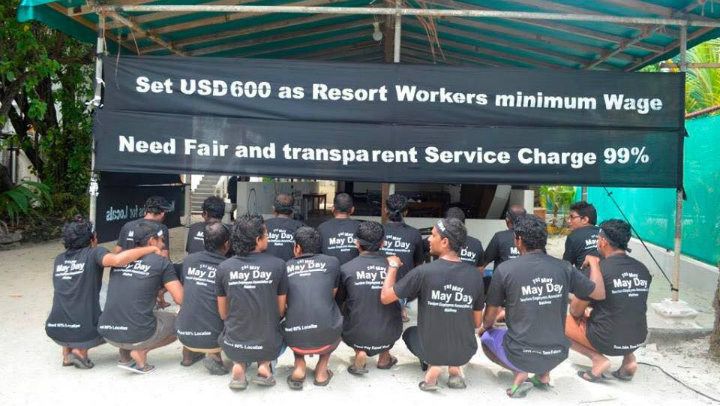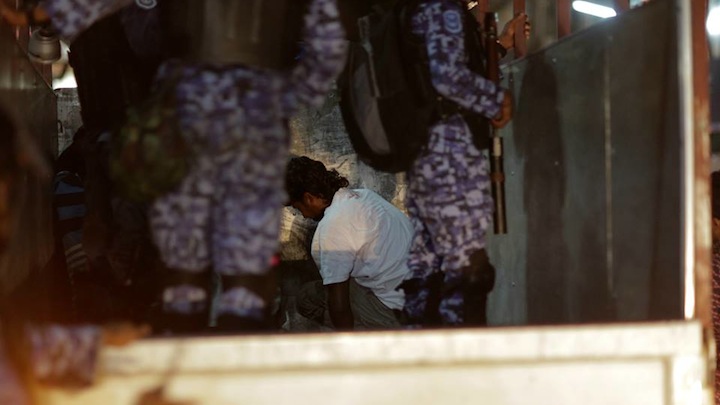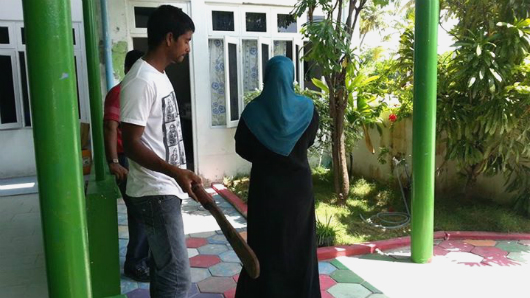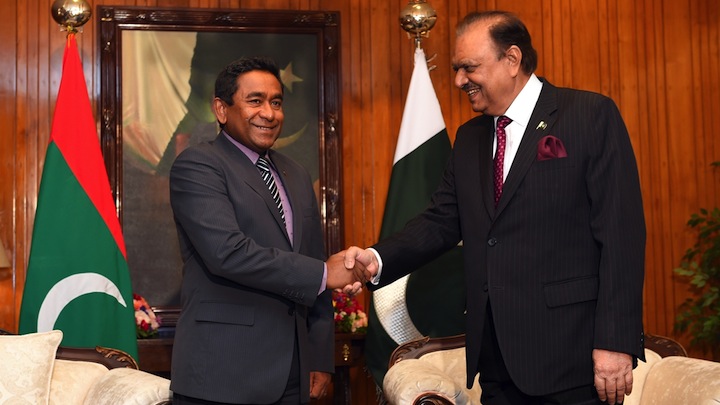The police have released some 50 of the 175 people held in custody over a mass antigovernment protest on May Day, but it is not yet clear if they will be charged.
According to a police spokesperson, the 50 were arrested from the protest on suspicion of obstructing police duty and disobedience to order. The Prosecutor General will decide whether to file charges, he said.
The penalty for obstructing police duty for a first time offender is a MVR3,000 fine, lawyers have said. According to the main opposition Maldivian Democratic Party (MDP), over 90 percent of the detainees do not have criminal records.
Some 193 people were arrested from the May Day demonstration after violent clashes erupted between protesters and police at dusk. The arrests are the largest number detained from a single protest in a decade.
The criminal court had granted a blanket 15-day extension of detention for 175 protesters, while 19 were released after police failed to present them at court in the 24 hours required by law.
The opposition had been protesting against the jailing of ex-president Mohamed Nasheed and former defence minister Mohamed Nazim, and government’s authoritarianism.
Speaking to Minivan News, MDP vice president Mohamed Shifaz said the 50 were released because the police could not handle the vast number of detainees.
“The Dhoonidhoo detention center does not have the capacity to hold so many people; they cannot provide enough water from their water plant, this is why they were released,” Shifaz said.
The MDP has alleged the detainees were kept in inhumane conditions at the Dhoonidhoo detention center. Lawyers say they have not had access to detainees, and say many are being held in overcrowded cells with no ventilation.
Police have also failed to provide medication at prescribed times and many are still wearing the same clothes from when they were arrested, lawyers said.
The police have dismissed the opposition’s allegations as “baldfaced lies,” insisting that cells at the Dhoonidhoo detention centre are up to standards.
The MDP has also alleged police severely beat several detainees at the time of arrest, including three of the nine suspects arrested over the assault of two police officers.
Video footage shows protesters tripping and kicking a Specialist Operations (SO) officer and one man hitting the policeman over the head with his baton.
Lawyers said the three were beaten at the police headquarters and police officers had threatened to kill them. The Human Rights Commission of the Maldives (HRCM) is investigating.
The MDP’s chairperson Ali Waheed, Adhaalath Party president Sheikh Imran Abdulla, and deputy leader of the Jumhooree Party Ameen Ibrahim remain in police custody. Imran was arrested at 11:00pm on May 1, while Waheed and Ameen were arrested in the early hours of May 2, under court warrants for intimidation.
